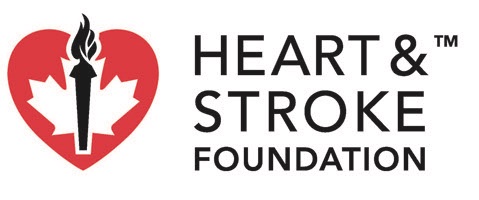Two Firefox browser tips:
- If you type about:support into the Firefox address bar, you get a whole host of useful information about your Firefox; I had no idea.
- If you’re a 1Password user–and you really should be–you can invoke password-filling with Command + Backslash. Again, I had no idea.
I’m promiscuous with my desktop browser: I’ve been flirting with Brave, and occasionally invoke Chrome or Safari. But Firefox, partly for ideological reasons and partly because I know and love it, is the browser that’s my everyday.
That “command backslash” keyboard shortcut is contemporary Canadian English for Command + \.
Which is a good time to mention the bold re-branding by the Heart and Stroke Foundation of Canada from:

to this:
![]()
This logo requires the interpretation of the second character as a stroke, the British English name for the character that, in North American English, we more commonly refer to as a slash.
With all due respect to the Commonwealth, you’ll seldom hear this called a “stroke” here in Canada–at least not in my digitally-leaning circles–and so this is a risky move by the organization. Which does not, in any way, diminish my love for the idea and its execution.
All of which begs the question: if the British refer to the / character as a stroke, then what do they call the \ character, its backward-facing evil twin?
Wikipedia does not help much. ASCII Pronunciation Rules for Programmers lists backslash, hack, whack, escape, reverse slash, slosh, backslant, and backwhack as “common names.”
So I did what one does in situations like this, and bopped over to the British Library Reference Desk and asked an actual Briton:
Me: Can you tell me what, in common British usage, the name for the \ character is?
Actual Briton: Hello. It’s commonly called the ‘backslash’
Thus were dashed my hopes that Britons call it the backstroke.
I suspect the reason for this is that the character is a modern one; the Oxford English Dictionary defines backslash as:
A symbol in the form of a backward-sloping diagonal line (\) used in programming notation; a reverse solidus.
And it provides the following supporting references:
- 1982 Byte Jan. 413/1 (caption) Arguments enclosed in backslashes refer to disk-file operations.
- 1982 Byte July 146/2 In some cases, they [sc. commands] are bordered by special characters, such as back slashes.
- 1983 Austral. Microcomputer Mag. Aug. 19/2 A path specification must be no longer than 63 characters, including the backslash characters used to separate the directory names.
- 1985 Personal Computer World Feb. 191/1 All Knowledge Man commands proper are accessible within K-Text by prefacing them with a backslash.
- 1986 Which Computer? Oct. 59/1 The single line of topics evoked by pressing Lotus’s backslash key.
Of note, as well, from the OED, is that other meanings of the word stroke include “a disease in the eyes of hawks,” “a blight on wheat, honey-dew,” and “a call played on the horn” in addition to the “linear mark; a mark traced by the moving point of a pen, pencil, etc.; a component line of a written character” (which dates from 1567, 415 years before the Byte caption invoked backslash).
Oh, and that Byte caption? Here it is in the Internet Archive of the magazine; it reads (emphasis mine):
Listing 2: A Morse-code generator program written in Cromemco 32 K Structured BASIC that illustrates some of the concepts of structured programming. Text for translation to Morse code is read from a disk file. Here the BASIC keywords use only an- initial capital letter, instead of the usual all-capital style. Long variable names are used, and names of procedures begin with periods. Arguments enclosed in backslashes refer to disk-file operations.
How lovely that a new character springs to life in the description of a digital Morse code generator. And how great it is that the Internet Archive has digitized Byte.
 I am
I am
Comments
A hat-tip to Rosie Le Faive
A hat-tip to Rosie Le Faive for helping me step into the OED from here in the outer regions of remotest downtown UPEI.
And also: use your local
And also: use your local library’s reference service. You will be surprised and delighted. And don’t forget that, in the digital age, what “your local library” means can be very different: I’ve yet to find a library that will refuse service to those “from away” in its digital refdesk.
Add new comment